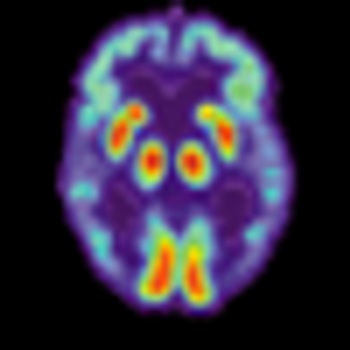
Medicine is not about making us feel better about ourselves-although this doesn’t hurt. In the case of addicts, it is about looking at the root cause of addictions and seeing the person-not just the addict-in front of us.

Medicine is not about making us feel better about ourselves-although this doesn’t hurt. In the case of addicts, it is about looking at the root cause of addictions and seeing the person-not just the addict-in front of us.

National Institute of Mental Health The mission of NIMH is to transform the understanding and treatment of mental illnesses through basic and clinical research, paving the way for prevention, recovery, and cure.

According to the American Foundation for Suicide Prevention, more than 34,000 Americans die by suicide annually. Of these, 10% have never been given a psychiatric diagnosis.

Xavier Amador, PhD, is a clinical psychologist and an internationally sought-after speaker. Dr. Amador has over 25 years of experience working with adults, families, and couples. In addition to continuing to his private practice in New York City, Dr. Amador is the Founder and Director of the LEAP Institute. LEAP is for therapists, family members, law enforcement officers, and anyone seeking to break through an impasse with someone who is convinced they are right and you are wrong. He and the faculty at LEAP conduct regional seminars for couples and other groups.


VITAL_Device_Detect for Media Suite. Version 2 (from staging)

What’s the best way to avoid the paresthesias that can occur in some patients who discontinue SSRI or serotonin-norepinephrine reuptake inhibitor (SNRI) therapy?

What was your experience like as a psychiatry resident? No matter when or where you went to school, we want to know.

Dr Feinberg takes exception to much of what we wrote, or what he thinks we wrote, in our article “Early Antecedents and Detection in Schizophrenia”. We will do our best to reply to his criticisms of what we did write and try to point out where he is shadowboxing at issues that he has created but that we do not hold or endorse.

I wish to comment on the article by Drs McGlashan and Woods, “Early Antecedents and Detection of Schizophrenia” in the March 2011 issue of Psychiatric Times.

The White House Office of National Drug Control Policy will work with Congress to pass new legislation requiring all physicians with Drug Enforcement Administration (DEA) registrations to undergo mandatory education on the use of long-acting and extended-release opioids.

New technologies pose challenges in the need to maintain boundaries and confidentiality. The same boundaries and ethical standards that existed in the 20th century must be thoughtfully applied with all new and developing technologies of the 21st century.

Alfred Freedman was an eminent psychiatric educator, a leader of his profession, and a man willing to challenge public prejudice. He was also one of my closest friends.

The various treatment guidelines are a useful authoritative resource for the reader who wants to know more about this topic.

If psychiatry reduces or abandons its engagement with psychology and social science in understanding and treating mental disorders and focuses predominantly on the biological factors of mental disorders, what will our role as psychiatrists be?

The majority of the literature focuses on prenatal and postnatal depression in mothers, and little attention has been given to the incidence of prenatal and postpartum depression in fathers.

Humans have just these 2 ways of sorting things--giving them a name or a giving them a number. We have been naming things since the days of Adam.

Here’s why it is painful to see a man cry: he's not supposed to. Emotions are arresting when society tells us they should not be expressed. In the case of a grown man crying, there are some thousands of years of cultural training laying down the prohibitive regulations.

Marsha Linehan is the creator of Dialectical Behavior Therapy (DBT)-the best available method for helping self destructive people help themselves. I have never been more admiring of her than I am at this moment.

There are not enough participating psychiatrists to accommodate all who would seek treatment if it were affordable. This is not a good situation.

There should be no quarrel over the reality of severe CFS as an instantiation of genuine disease, just as schizophrenia and major depression constitute real disease.

"Einstein’s happiest moment...occurred when he realized...a falling man falling...beside a falling apple..."

In the sixth edition of his famous 2-volume textbook Psychiatrie, which appeared in 1899, Emil Kraepelin introduced the by now well-known distinction between dementia praecox (soon to be called schizophrenia) and manic-depressive illness.

I just attended the 40th year reunion of my medical school class at Yale. As is common at these 5-year reunions, we compare our careers and the progress of medicine, although this time more of the focus seemed to be on our personal lives and our new Medicare cards.

If telling patients they have “pre-clinical Alzheimer’s” or “MCI due to Alzheimer’s Disease”-absent effective treatment-produces more emotional suffering than it relieves, a difficult ethical question arises; namely, can such a disclosure be justified under the foundational principle of non-malfeasance?

The model in which young doctors acquired their medical skills by working unsupervised on poor patients at county hospitals is, fortunately, a thing of the past. Is today's model better?

Amidst sexting congressmen, philandering French IMF directors, and gallivanting governors, I suspect many psychiatrists have been accosted with questions from friends and colleagues. Such questions generally conform to some permutation of “What makes a person do that?”

I teach doctors and nurses how to assess, treat, and prevent delirium-an acute confusional disorder caused by multiple medical problems that mimics mental illness-but is actually a medical emergency.


Not long ago, we posted a survey on our website that included a series of questions about ethical dilemmas mental health professionals face in daily practice.